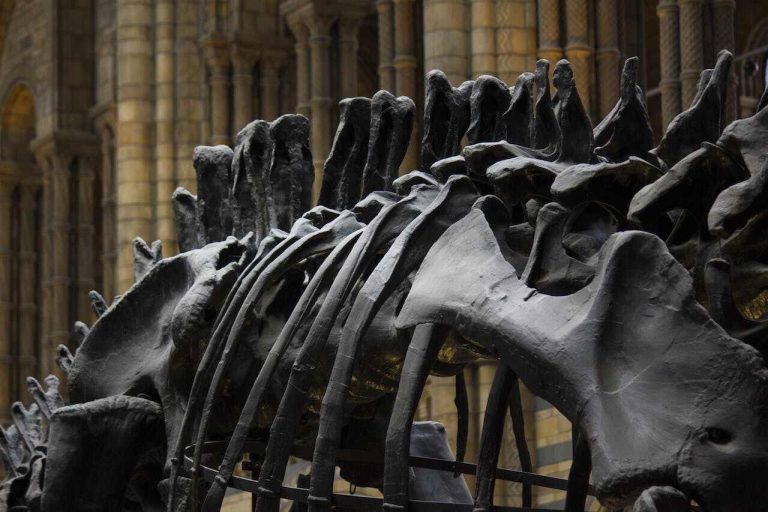As a seasoned IB writer, I’ve seen my fair share of History Internal Assessments (IAs). And let me tell you, choosing the right topic is half the battle won. It’s as important as the research. In this article, I’ll share insights and advice on picking winning History IA topics. Remember, a well-chosen option makes your research enjoyable and sets the stage for a high-scoring paper.
The Role of Research in History IA
Research in History is not just about collecting data; it’s about engaging with the past, questioning narratives, and understanding the complexity of historical events and perspectives. In my extensive experience with the IB, I’ve found that students who approach their research with a critical eye tend to produce more nuanced and compelling IAs without mistakes.
When you begin your research, start with a broad investigation of your chosen topic. This initial phase is about immersing yourself in the subject, understanding different viewpoints, and identifying existing literature gaps. As you progress, your focus should shift to more specific sources related to your research question. It’s a path from the general to the specific, with each step bringing you closer to a well-defined thesis.
Primary sources are the foundation of historical research. These first-hand accounts, original documents, or artifacts from your study period offer invaluable insight. They provide a direct window into the past, allowing you to form interpretations rather than relying solely on secondary analysis. However, interpreting primary sources requires a critical approach. Always consider the context in which they were created — who wrote them, why, and for whom? This perspective is crucial to understanding the biases and limitations of your sources.
Secondary sources, such as scholarly articles and books, are equally important. They represent the current understanding and debates among historians about your topic. Engaging with these sources helps you position your research within the broader scholarly conversation. Here, you see how your work contributes to our understanding of history.
Finally, the integrity of your research is critical. Always give proper credit to your sources to avoid plagiarism. Originality in your analysis and interpretation is what makes your IA stand out. Remember, a great History IA isn’t just about reciting historical facts; it’s about presenting a well-argued, insightful perspective that reflects a deep engagement with your topic.
History IA Topics You Can Consider
Over the years, specific themes have become student favorites. For instance, topics related to major world events or influential historical figures often recur. However, while these options are popular, feel free to put your unique spin on them. This approach can make your IA stand out from the crowd. Now, let’s look at some IA topics you can consider and improve.

- The Impact of World War I on European Society. How did World War I change social structures and norms in France?
- The Rise and Fall of the Roman Empire. What were the key factors that led to the decline of the Roman Empire?
- The French Revolution’s Influence on European Politics. How did the French Revolution reshape political ideologies in Europe?
- The Holocaust and Its Lasting Impact. What were the long-term psychological impacts of the Holocaust on survivors?
- The American Civil Rights Movement. How did the Civil Rights Movement alter racial dynamics in the United States?
- The Fall of the Berlin Wall. What were the immediate social effects in Germany following the fall of the Berlin Wall?
- The Cuban Missile Crisis. How did the Cuban Missile Crisis affect international relations during the Cold War?
- The Industrial Revolution and Its Global Effects. What role did the Industrial Revolution play in shaping modern economic systems?
- The Vietnam War. How did the Vietnam War alter American foreign policy and military strategy?
- The Formation of the United Nations. What impact did the establishment of the United Nations have on global diplomacy?
- Gandhi’s Role in Indian Independence. How did Gandhi’s philosophy influence the Indian independence movement?
- The Rwandan Genocide. What were the international responses to the Rwandan Genocide, and were they effective?
- The Cultural Revolution in China. How did the Cultural Revolution affect Chinese society and culture in the long term?
- The Apartheid Era in South Africa. What were the key factors that led to the end of apartheid in South Africa?
- The Spanish Inquisition. What impact did the Spanish Inquisition have on religious practices in Spain?
- The Impact of the Atomic Bomb on Japan. How did the atomic bombings affect Japanese domestic policy post-World War II?
- The Iranian Revolution. What were the causes of the Iranian Revolution, and how did it reshape the country’s political landscape?
- The British Raj in India. How did British colonialism impact the social and economic structures of India?
- The Crusades’ Effects on European and Middle Eastern Relations. How did the Crusades alter the relationship between Europe and the Middle East?
- The Discovery of the New World. What were the immediate consequences of the discovery of the Americas for European powers?
- The Korean War and Its Legacy. What were the long-term effects of the Korean War on the Korean peninsula?
- Women’s Suffrage Movement. How did the women’s suffrage movement change political participation in the United Kingdom?
- The Russian Revolution. What were the key causes of the Russian Revolution, and how did it affect Russian society?
- The Rise of Fascism in Europe. How did economic conditions in post-World War I Europe contribute to the rise of fascism?
- The Partition of India. What were the immediate social impacts of the partition of India in 1947?
- The Civil War in Spain. What role did international powers play in the Spanish Civil War?
- The Opium Wars in China. How did the Opium Wars affect Chinese foreign policy and domestic affairs?
- The Impact of the Great Depression on World Politics. How did the Great Depression influence political ideologies in the United States?
- The Age of Exploration’s Impact on Indigenous Populations. What were the effects of European exploration on indigenous populations in the Americas?
- The Rise of the Ottoman Empire. What factors contributed to the rise and success of the Ottoman Empire?
- The Salem Witch Trials. What social and psychological factors led to the Salem Witch Trials?
- Napoleon Bonaparte’s Military Strategies. How did Napoleon Bonaparte’s military tactics change the nature of warfare?
- The Zulu Kingdom and Colonialism. How did the Zulu Kingdom resist European colonialism?
- The Cold War Space Race. How did the Space Race impact U.S. – Soviet relations during the Cold War?
- The Assassination of Archduke Franz Ferdinand. How did the assassination of Archduke Franz Ferdinand trigger World War I?
- The Glorious Revolution in England. What were the political consequences of the Glorious Revolution in England?
- The Role of Propaganda in Nazi Germany. How did Nazi propaganda influence public opinion and policy in Germany?
- The Development of the Silk Road. How did the Silk Road facilitate cultural exchange between the East and the West?
- Mao Zedong’s Leadership in China. What were Mao Zedong’s key policies, and how did they shape modern China?
- The Formation of Israel and the Middle East Conflict. How did the formation of Israel in 1948 affect the geopolitical landscape of the Middle East?
- The Transatlantic Slave Trade. What were the economic impacts of the transatlantic slave trade on African societies?
- The Decline of the Byzantine Empire. What factors led to the decline and fall of the Byzantine Empire?
- The Magna Carta and Its Influence on Democracy. How did the Magna Carta influence the development of democratic principles?
- The Impact of Genghis Khan and the Mongol Empire. What were the long-term effects of the Mongol Empire on Eurasian societies?
- The Battle of Waterloo. How did the Battle of Waterloo shape the political landscape of Europe?
- The End of the Samurai Era in Japan. What caused the decline of the Samurai class in Japanese society?
- The Irish Potato Famine and Emigration. How did the Irish Potato Famine affect patterns of emigration and Irish society?
- The Suez Crisis. What were the international repercussions of the Suez Crisis in 1956?
- The Impact of the Gold Rush on American Development. How did the Gold Rush of the 19th century contribute to the economic development of the United States?
- The Cuban Revolution. What were the causes of the Cuban Revolution, and how did it alter Cuba’s relationship with the United States?
- The Impact of the Printing Press on European Society. How did the invention of the printing press in the 15th century revolutionize communication and knowledge dissemination in Europe?
- The French Colonial Empire in Africa. What were the long-term socio-economic impacts of French colonialism on West African societies?
- The Byzantine Empire’s Influence on Eastern Orthodoxy. How did the Byzantine Empire contribute to the spread and development of Eastern Orthodox Christianity?
- The Manhattan Project and the Development of Nuclear Weapons. How did the Manhattan Project change global military strategy and international relations?
- The Mexican Revolution and Its Legacy. What were the major social and political changes resulting from the Mexican Revolution in the early 20th century?
These History IA topics and corresponding research questions are suitable for Higher Level (HL) and Standard Level (SL). Such themes span various periods and themes, offering a range of options to cater to diverse interests.
Buy IB IA with Full Confidentiality!
Grab your IB IA with full privacy guaranteed.
Our no-leak policy keeps your details 100% secure.

Tips for Narrowing Down History IA Topics
When refining your History IA focus, envision it as filtering through many historical events and figures to pinpoint the one that truly captivates you. Initially, brainstorm a wide range of ideas that pique your interest. This crucial stage lays the groundwork for focused and effective research.
Once you’ve gathered a variety of potential topics, it’s time for critical evaluation. Assess the available resources and depth of content for each possibility. Those with ample resources and rich material will provide a robust foundation for your paper. Additionally, gauge your interest in each topic. Being genuinely intrigued by your choice will sustain your motivation throughout the research and writing phases.
Begin to narrow your choices by eliminating those that are overly broad or lacking sufficient resources. Gradually whittle your list down to a few manageable and engaging options. At this juncture, seeking advice from teachers or mentors can be invaluable. Their expertise and viewpoints can guide you toward a well-informed decision.
The Bottom Line
In conclusion, choosing the right topic for your History IA is essential. It should be interesting, well-researched, and aligned with the IB criteria. In my experience, students who invest time choosing and refining their topic tend to do better. So, approach this process with confidence, curiosity, and creativity. I wish you the best of luck! Also, our expert writers at Buy IB Internal Assessment are always ready to help with your History IA.

Nick Radlinsky
Nick Radlinsky is a passionate educator, marketer, and management expert with over 15 years of experience in the education sector. After graduating from business school in 2016, Nick embarked on a journey to earn his PhD, fueled by his dedication to making education better for students everywhere. His extensive experience, beginning in 2008, has made him a trusted authority in the field.
Nick's groundbreaking article, published in Routledge's "Entrepreneurship in Central and Eastern Europe: Development through Internationalization," showcases his keen insights and commitment to improving the educational landscape. Guided by his motto, "Make education better," Nick's mission is to simplify students' lives and promote efficiency in learning. His innovative ideas and leadership have helped transform countless educational experiences, setting him apart as a true pioneer in his field.




